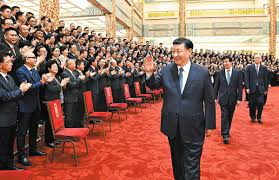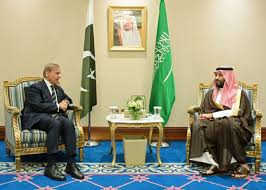Vladimir Putin, the most successful leader in the world?

Islamabad: Vladimir Putin without a doubt appears to be the most successful leader in the world today. With the weakest of hands, an economy not much larger than that of Spain, and a gross domestic product per capita several thousand dollars smaller than Malaysia, he has asserted massive negative influence over the globalized world.
But with his dual obsession on the importance of buffer states such as Ukraine and the disruption of the West, Putin ignores what should be his greatest concern, which is the mirror held up to it by China. The successes in this neighboring country, compared to the dragging Russian economy, is a reflection on his leadership that will not be ignored forever by its citizens and elites. In 1905, Russia was in a similar situation. Japan, which Moscow viewed as an inferior Asian country, defeated Russia. The powerful victory of Japan over a Russia isolated in its own belief system shocked all levels of Russian society. It fermented a snowballing of disbelief in the legitimacy of the czar leading all to the revolution.
Now a modern Asian nation is again demonstrating that something is dramatically wrong within Russia. China, the former student of Russia in autocracy, is not only a winner in the game of globalization, it is now trying to master the difficult steps of reordering its economy to succeed in a new technological generation. Strikingly, Putin does not seem to care. He does not appear to understand that Ukraine is the least of his problems. To contrast the approaches of Russia and China to globalization, to capitalism, and even to claims on territories that would “fall under their civilizations” is a study in successful leadership versus failed leadership.
From the beginning of their experiments with capitalism, these two former giants of communist tyranny acted differently, with China acting more wisely. When the Soviet Union collapsed, Russia followed the “shock” theory, switching immediately from a communism to a mostly capitalist economy, an approach that led to anarchy. Under Deng Xiaoping, China followed a more judicious approach, experimenting with capitalist reforms in various zones before integrating them throughout the country.
More was going on than just how each country approached capitalism. When Deng began his reforms, the world was just moving into its current form of globalization. His reforms added the key component of Chinese capital in the form of millions of cheap factory workers, caffeinating globalization beyond any reality known up until that time. Russia did not add anything to the newly connected world. Its exports, raw materials and energy commodities that can be sold without any understanding of marketing or customer satisfaction, basically continued to be what they were under the Soviets. While energy generates huge cash flows, the industry can be controlled by a few and remain free from a competitive need to change and improve.
Chinese leadership also demonstrated extraordinary awareness when they agreed to reforms to join the World Trade Organization in 2001. These reforms enabled China to become the superstar of globalization. The leadership took a huge risk relaxing thousands of tariffs and other trade barriers. Within Chinese ruling circles, some feared that by reducing these tariffs, foreign competition would decimate outdated state enterprises, which partly did happen, but the risk was worth it. In the years that followed, China enjoyed one of the best decades in economic history.
Russia, on the other hand, finally joined the World Trade Organization in 2012, while Dmitry Medvedev was president after years of drawn out negotiations. The hesitancy on this move represented the myopic Russian nationalist view that globalization threatened to replace existing Russian industries with new Western enterprises. Globalization was seen not as a way to lift the Russian economy, the way that it was seen through the lens in China, but rather as a means for the West to invade Moscow using international business weapons.
Of course, from the position of the Russian oligarchy, why rush to force drastic reforms on your top industry when the main export is energy? But the corollary to this argument was that Russia might not otherwise diversify its exports and be anything more than a commodity supplier unless its industry was allowed to compete in the world and learn from that.
Finally there is the issue of territories, which has little to do with globalization but a lot to do with how secure leadership is, as well as the nature of the culture they lead. Since the 1970s, especially in dealing with Taiwan and Hong Kong, China has understood that it has time on its hands. The leadership realizes that even Taiwan, which for decades directly challenged the legitimacy of the government in Beijing, is not its singular problem. Contrast this with how Russia has handled Ukraine.
Moreover, while both countries do not have many friends, Russia has satellites and clients, while China has business relations, which is a major difference. Putin has been rightfully accused of following a 19th century foreign policy, but that is a symptom, not a problem. His problem is that Russia has remained a 19th century market. All his fears about the West are truly illusionary compared to the reality of the economic achievements of his Asian neighbor.





